09 Oct 2021 - {{hitsCtrl.values.hits}}
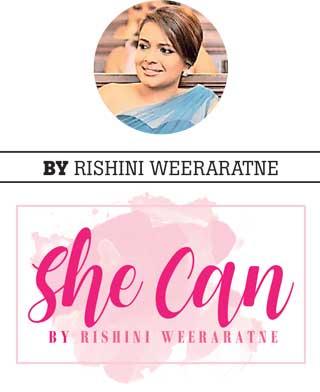 She is a Human Rights Activist who fled Afghanistan with the help of an international team, most of whom she is yet to meet in-person, and included Sri Lankan’s, Israeli’s and Qatari’s, to name a few. Several high-profile government stakeholders in Sri Lanka collaborated to assist her escape Afghanistan. I was first introduced to her by Prashan De Visser, Founder, Global Unites and Aritha Wickremasinghe, Director, iPro Bono, via WhatsApp, whilst she was still in Kabul, living in fear as she was most likely to be a primary target of the Taliban, and other terrorist groups that she had helped prosecute, but were now occupying Kabul. As a Human Rights Activist working on policy to strengthen punishments for crimes of sexual abuse and harassment against women and children, she was involved in several high-profile cases in Afghanistan.
She is a Human Rights Activist who fled Afghanistan with the help of an international team, most of whom she is yet to meet in-person, and included Sri Lankan’s, Israeli’s and Qatari’s, to name a few. Several high-profile government stakeholders in Sri Lanka collaborated to assist her escape Afghanistan. I was first introduced to her by Prashan De Visser, Founder, Global Unites and Aritha Wickremasinghe, Director, iPro Bono, via WhatsApp, whilst she was still in Kabul, living in fear as she was most likely to be a primary target of the Taliban, and other terrorist groups that she had helped prosecute, but were now occupying Kabul. As a Human Rights Activist working on policy to strengthen punishments for crimes of sexual abuse and harassment against women and children, she was involved in several high-profile cases in Afghanistan.
In 2016, she survived a nine-hour long gun attack at her university which killed more than a dozen people including students and police officers. She is a fighter, a survivor. She is determined to work towards achieving lasting peace and equal rights for all women and children in Afghanistan. Although, she is at present in Sri Lanka on a visitor visa, and is working on her paperwork to travel to the US, her end goal is to see a united, free Afghanistan where all citizens can live a dignified life irrespective of their ethnicity, religion or gender.
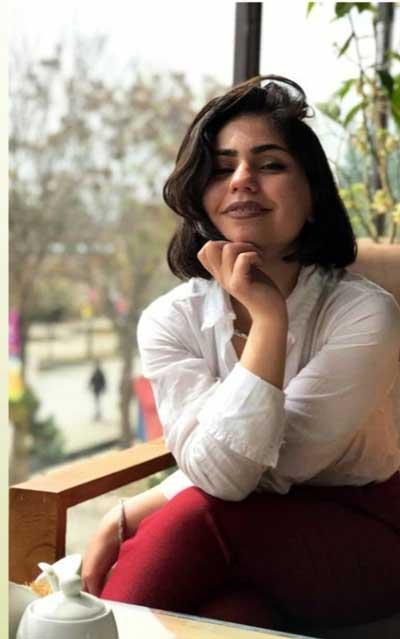 She is a graduate of Political Science with a minor in Law from the American University of Afghanistan. She pursued her primary, secondary and tertiary education against all odds in Kandahar and Kabul. She left home in Kandahar at the age of sixteen and traveled to Kabul to live alone, to pursue her higher education and to work in the public sector and with non-governmental organizations.
She is a graduate of Political Science with a minor in Law from the American University of Afghanistan. She pursued her primary, secondary and tertiary education against all odds in Kandahar and Kabul. She left home in Kandahar at the age of sixteen and traveled to Kabul to live alone, to pursue her higher education and to work in the public sector and with non-governmental organizations.
She Can and she is an ambitious, intelligent, twenty-one-year-old, empowered Afghan woman; Zakira Rasooli.
Share with us a summary of your professional journey?
I worked with the Women for Justice Organization, advocating for justice for survivors of sexual violence, human rights violations, and institutional accountability. I was also a Researcher focused on conflict studies, transitional justice, human rights and women’ rights. In 2019, I Co-Founded Afghanistan Unites; a grassroots, conflict transformative youth movement bringing transformation through non-violence and rehabilitation. I currently work as the Co-National Director of Afghanistan Unites, under the Global Unites umbrella 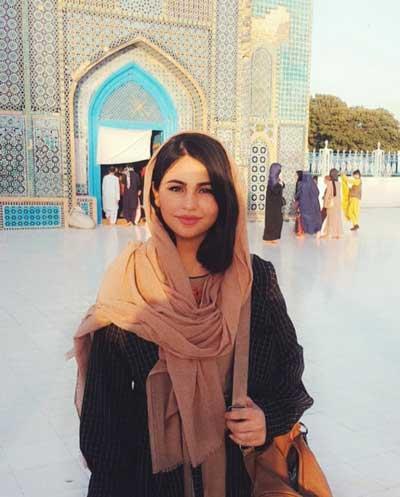 movement. I also Co-Founded AUAF (The American University of Afghanistan) Journal of Politics and Law, which was the first peer-review journal in Afghanistan where indigenous research was conducted by educated Afghan youth on legal and political issues in the country. I recently worked with IWPS (Institute of War and Peace Studies) and DROPS (an organization for Policy Research and Development Studies), as a Researcher on peacebuilding, security issues and women’s role in peacebuilding in Afghanistan. I have also worked as a Content Writer and Researcher with PHILIA; a global women empowerment organization.
movement. I also Co-Founded AUAF (The American University of Afghanistan) Journal of Politics and Law, which was the first peer-review journal in Afghanistan where indigenous research was conducted by educated Afghan youth on legal and political issues in the country. I recently worked with IWPS (Institute of War and Peace Studies) and DROPS (an organization for Policy Research and Development Studies), as a Researcher on peacebuilding, security issues and women’s role in peacebuilding in Afghanistan. I have also worked as a Content Writer and Researcher with PHILIA; a global women empowerment organization.
Share with us a summary of your personal journey?
I had a carefree childhood until the age of eleven. I was a spoilt child, unaware of the world outside my house. I was loved, protected, and taken care of. But, everything changed after my father passed away. My father’s loss exposed me to every component of a war-torn society. Living in the context of Afghanistan, losing my father was the loss of my childhood, protection and safety. It 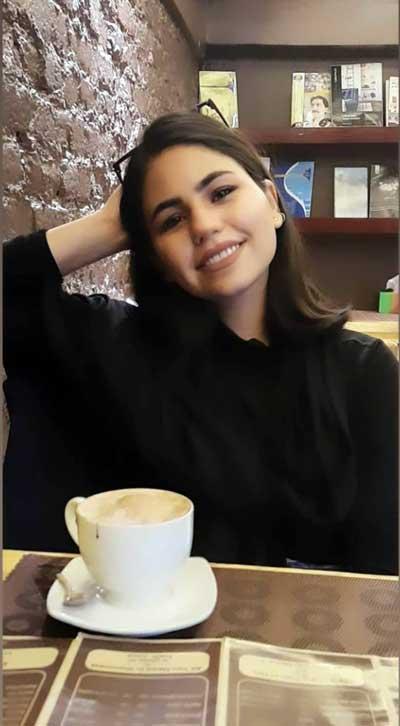 left the eleven year old me, responsible to earn for my family in Kandahar, the most insecure province for a woman to live and thrive; the pursuit of which exposed me to the risks of losing my life, was severely bullied and subjected to daily harassment. Accessing my basic rights to education, was my responsibility to fight for. My sister gave me a notebook and asked me to write my wishes and my experiences as a story. I started to write them in poems instead. I had the whole notebook filled with what I wanted to happen differently around me. What I would do If I got older. I was ambitious and wanted to grow older because the vulnerability of being a child was unbearable for me, but writing it kept me, patient.
left the eleven year old me, responsible to earn for my family in Kandahar, the most insecure province for a woman to live and thrive; the pursuit of which exposed me to the risks of losing my life, was severely bullied and subjected to daily harassment. Accessing my basic rights to education, was my responsibility to fight for. My sister gave me a notebook and asked me to write my wishes and my experiences as a story. I started to write them in poems instead. I had the whole notebook filled with what I wanted to happen differently around me. What I would do If I got older. I was ambitious and wanted to grow older because the vulnerability of being a child was unbearable for me, but writing it kept me, patient.
I believed rights are not given, it’s taken. Despite the difficulty and the odds, I made sure I obtained my rights. Thus far, I am pleased to say I have managed to get everything I wanted and planned for. I was bullied, thrown stones at, and denounced in society, people tried hard to prevent my siblings and I from going to school (we were the only girls going to school in our village, Loywala). I could not carry a school bag going to an English or IT class. I could not carry anything that would make people realize I was going to a class. In response, my mother opened a home-school for the older girls at the village who were not allowed to go to school. This taught me how to respond to injustices; we must help each other and that’s the only way forward. I was the top student in school and in all the courses I took. I wanted to be the best, do my best. I was a speaker at events about peace, youth and women’s rights activism; these little things seemed so big at the time and it kept me going, and kept me proud of my self and the journey I was on.
In 2013, I became an English teacher. It took me two years to prepare for this role. They gave me a beginner’s class to teach. In three months, they gave me the advanced class to teach, where my school teachers, seniors in school, and some of my own classmates were my students. After six months, I was promoted as the Executive Manager of the institute. I was in the twelfth grade when I got the offer to work as a Deputy Coordinator at the Lincoln Learning Center, Ministry of Information and Culture. In this role, I was able to organize and manage several large-scale events, speak as a Guest Speaker at several public events, was able to assist female visitors, share knowledge, skills and training with women that would subsequently enable them to flourish in their own careers and personal lives. I mentored women and helped them overcome all forms of violence they were subjected to in their personal lives
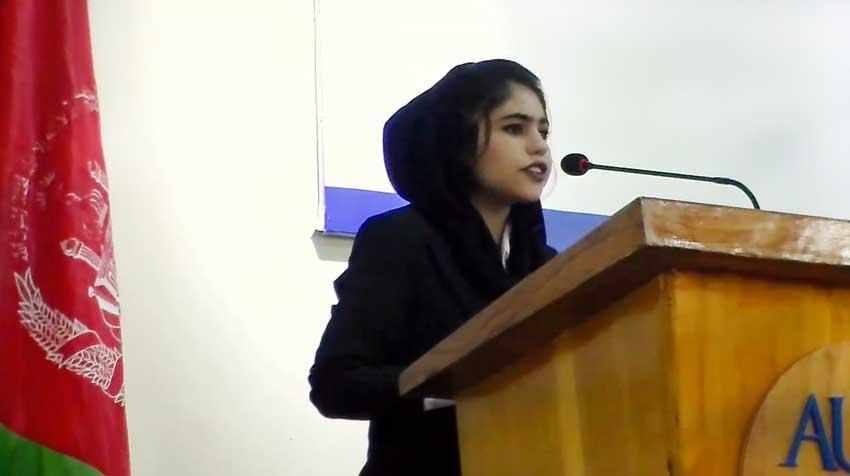
After six months in this role, I received a scholarship to study at the American University of Afghanistan. AUAF was the best university in Afghanistan, I could not even dare to dream of getting in. Hence, at the age of sixteen years, I traveled alone to the capital, away from home, to commence reading for my Bachelor of Arts in Political Science. On my fifth day at university, the campus was attacked by gunmen; militants drove two bomb trucks into the school and several militants entered the campus and started shooting at students. I watched in horror, frozen, unable to move, almost in a certain of paralysis. I saw the fire and smoke, shrapnel flying all over my head, and all around me, and bullets being fired at everyone. I watched my hopes and dreams die before my eyes. I watched them wanting to take away my life simply because I was a girl seeking an education. My death was legitimized for pursuing an education, for dreaming about a better future. I narrowly escaped this attack.
The university took a decision to temporarily close down for an unspecified time. Hence, I returned back home to Kandahar and started to teach kids at the local school. Teaching was therapeutic for me, it was my way of dealing with the trauma I had experienced in Kabul. The university reopened a year later and I was finally able to resume my tertiary education. I cherished my time at AUAF. I was a dedicated and hardworking student. I had a lot of questions and hence, I would never run out questions to ask at class, and I always had something to add to every discussion. Shortly after I started my advocacy by writing stories; I would travel out of the campus, talk to women and kids and write their stories, and raise awareness. I also started to give interviews and make speeches on TV. My university Professors played a very important role in my life, they believed in me and provided the required mentorship and assistance to help me pursue my goals. I saw myself growing up quite fast, and was able to achieve one goal after the other. I soon got a much-sought after job that allowed me to work closely with the government, and gave me an opportunity to handle projects on a national level.
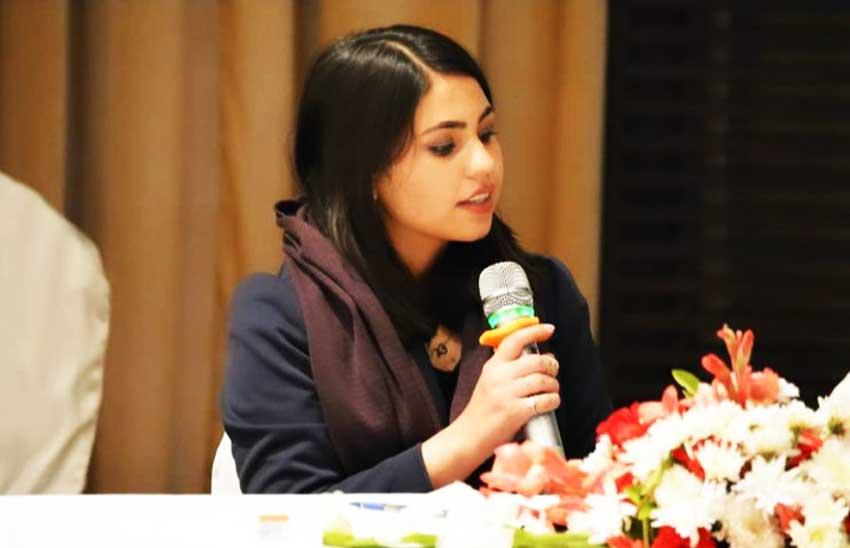
Whilst, working and studying, I decided to further enhance my knowledge and qualifications by reading for a Minor in Law, and by enrolling myself for classes in Gender Studies at AUAF. I was determined to be an Advocate for Women and Children. Simultaneously, I received offers to work on projects that would impact Women’s and Children’s rights on a national level. I was given opportunities whereby I was able to assist in amending policies and develop policies and mechanisms that would directly impact the lives of women and children in Afghanistan. Through my work, I was able to work with several national and international human rights defenders, women who were holding important positions in public offices and state institutions, etc. All of them inspired me, motivated me and taught me many valuable lessons. Working directly with women engaged in politics was a life changing experience for me. Learning about the challenges they faced and how they battled each day and yet continued to make a success of their careers and lives, inspired me to push more boundaries. I was invited to be a speaker at several national advocacy events that were being held to highlight the ongoing peace negotiations. I loved my job, I could literally see the impact of my work every day, It was not small, it was big, and this made all my struggles worth it.
During my career, I was able to successfully work with the team and we managed to ban virginity tests in Afghanistan; this was a big win for us! Working closely with the Ministry of Higher Education and Women’s Affairs, we amended policies, created mechanisms to make educational institutions safer for women, and we presented several cases of sexual harassment against female police officers in court and advocated for it by amending existing policies. Furthermore, I also started to write academically on peace and women’s role in development and peacebuilding. I published several articles for several journals and research organizations. Indigneous writing was significant for us, and it had just started. When the country collapsed and fell in to the hands of a terrorist group, everything was robbed from us; our years-worth of achievements and hard-work for reform was robbed from us overnight.
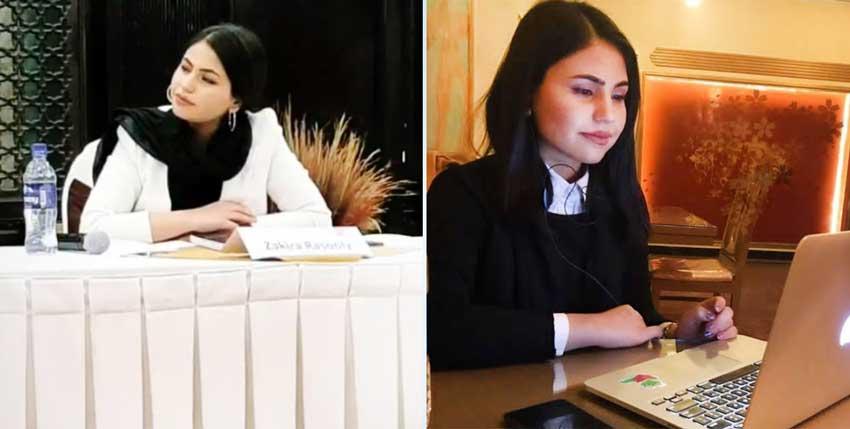
Who do you look up to for inspiration or mentorship?
Mariam Safi, the Founder and Executive Director of DROPS; an Organization for Policy Research and Development Studies. I initially met her as my Professor teaching Conflict Resolution at AUAF. She inspired me to follow in her footsteps.
Your biggest regret?
Not spending enough time with my family and friends. I don’t have that option anymore and I know I probably won’t see them for a very long time.
Harassment and Discrimination: Share with us a few personal experiences.
Born and raised in Kandahar, I have been harassed everywhere outside my home. In public places, in school and at office. I was almost always the only female or one of a handful of females working in most these organizations and government offices, hence I was constantly subjected to harassment. I have been disrespected, harassed, looked down upon and not listened to, countless number of times throughout my life and career, simply because I was a woman. Harassment on the streets was pervasive. I remember spending much time and energy facing the harassers and trying to calmly engage them in conversation and explain to them the mental and physical trauma their actions were causing me and other women and children. I soon realized my efforts were in vain. Eventually my patience would run out, and I would burst out of anger and hate on them with words or react physically.
As a child I didn’t realize there was a difference in my ethnicity or religious sect, despite how widely divided Afghanistan remains on these two lines. My parents were educated and against all such divisions. However, when I was eight years old, we had a family new to the neighborhood, and we had cooked a meal for them. I took it to their house. The gentleman in the house asked me what my ethnicity was. I pardoned for not understanding what he meant. He then asked if I was Pashtana or Tajik. I thought to myself that Pashtana might mean angel or a good human being, so I told him I was pashtana. I went home and asked my father, if I was Pashtana. He smiled and said that it didn’t matter. I got to know from a school teacher, that in fact I was Tajik.
Where do you see yourself ten years from now?
I have always waited for my thirties. I always felt I would be equipped with the skills, authority and power to implement projects and policies that would shift the ecosystem for women and children in my country in my thirties. I always assumed my every action will speak louder and will bring about much needed change in my thirties.
Do you think you will ever move back to Afghanistan again in the near future?
Not immediately. It is no longer safe for me to live and work in Afghanistan, and more importantly my return would not make any difference now. I need to survive and work on myself for now. I will return to my country when I am ready, and when the country is ready! I plan to complete my Masters and a Ph.D. I will return back home once I have the authority and the means to make a difference.
07 Jan 2025 4 hours ago
07 Jan 2025 4 hours ago
07 Jan 2025 5 hours ago
07 Jan 2025 7 hours ago
07 Jan 2025 7 hours ago